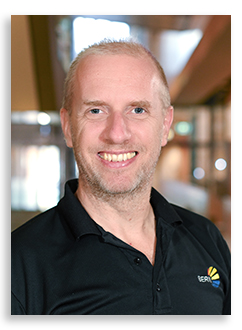
Click image for HiRes
Abstract
The recent evidence of the need for a further boost in solar photovoltaic (PV) deployment has triggered actions from policymakers. These are leading to a change of paradigm in the PV community, from established PV applications (mainly rooftop, and utility-scale for commercial PV modules; but also space, indoor PV and gadgets) towards the exploitation of new “integrated” applications. In 2022 our Institute has co-launched the 1st International Integrated-PV Workshop, bringing together worldwide experts of building-integrated PV (BIPV), vehicle-integrated PV (VIPV), agro PV, floating-PV, and PV integrated into urban infrastructures (noise-barrier PV, PV fence, road-integrated PV, PV shields, PV-carports, etc.). Modules designed for these novel PV applications require to rethink the test procedures for their qualification, and new advanced stress tests will be needed to ensure that modules can withstand new specific operational environments. This work will list the environmental features (and associated stresses with severities) that will need to be assessed soon to ensure PV module reliability, with a focus on floating PV applications. Examples are:
- Corrosive atmosphere (chemical reactions; corrosion; surface deterioration; soiling), with risk of increase wear, insulation failures, mechanical failures, electrical failures, and PID.
- Rapid change in temperature (thermal shock caused by water impact/immersion; differential heating), with risk of mechanical failures, cracking, seal damage and insulation leakage.
- Acceleration, vibration, mechanical drop/shock (mechanical stress; fatigue; resonance), with risk of mechanical failures.
A dedicated testbed has been designed to evaluate the mechanical impact of vibration, impact of water and thermal shock. New test protocols are proposed, including: PID in salt mist; vibration test; drop test and water drop test; partial immersion test; combined tests. preliminary results are shown on commercial modules that are currently in use in floating PV applications.
Click here to see all available video seminars.
Click here to go to the SPREE HOMEPAGE.
Brief Bio
Dr Mauro Pravettoni is currently Singapore’s convenor of IEC National Committee, member of the British Society for the Philosophy of Science and ISO 17025 Technical Assessor for NATA, the Australian National Agency of Testing Authorities. He got his PhD at the Imperial College, London. Since 2017 he is at the National University of Singapore, where he is director of PV Module for Urban Solar Cluster at SERIS, the Solar Energy Research Institute of Singapore. From December 2023 he will be appointed Senior Director at the Technology & Innovation Institute in Abu Dhabi. cells.
